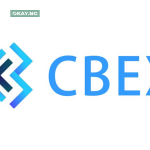The Socio-Economic Rights and Accountability Project (SERAP) has issued a stern call to the Nigerian Senate President, Godswill Akpabio, and Speaker of the House of Representatives, Tajudeen Abbas, demanding the immediate withdrawal of a controversial bill aimed at regulating bloggers. This bill, an amendment to the Nigeria Data Protection Act 2023, is seen by SERAP as a blatant attempt to stifle online freedom and reintroduce previously rejected social media control measures.
“This bill is a blatant attempt to bring back and fast-track the obnoxious and widely rejected social media bill by the back-door,” stated Kolawole Oluwadare, SERAP’s deputy director, in a letter dated April 12, 2025. The legislation proposes mandatory registration for bloggers, requiring them to establish physical offices and join recognized national associations. SERAP argues that these requirements would severely restrict freedom of expression and create a chilling effect on online discourse.
The proposed amendment has already passed its first and second readings in the Senate, raising significant concerns about its potential impact. SERAP warns that the bill could be used to ban major social media platforms, including Facebook, X (formerly Twitter), Instagram, WhatsApp, YouTube, and TikTok, if they fail to establish physical offices within 30 days. “The bill may also be used to block access of Nigerians to social media platforms. Blocking access to social media platforms is a flagrant violation of fundamental rights,” Oluwadare emphasized.
Concerns extend beyond social media platforms to encompass the broader implications for digital rights and business operations. “In addition to infringing on Nigerians’ right to access to information and digital technology, the proposed bill would also severely hamper business operations in the country, as many are reliant on foreign tools, services and technologies for their operations, as well as other sectors that rely on online information,” SERAP outlined.
Read Also: Senator Pushes for Tech Giants to Establish Nigerian Offices, Citing Job Creation and Tax Revenue
The organization further argues that the bill contradicts Nigeria’s constitutional and international human rights obligations. “The proposed amendment to the Nigeria Data Protection Act, 2023 fails to meet the requirements of the Nigerian Constitution 1999 [as amended] and international human rights treaties to which the country is a state party,” the letter stated.
SERAP also raised alarm that the bill could be used to suppress dissenting voices and shield the government from criticism. “The regulation of bloggers may be used to muzzle any dissenting voice and to silence any form of criticism or negative opinion on the policies and practices of the ruling party or the Government,” said Oluwadare.
The organization highlighted the critical role bloggers play in disseminating information and holding power to account. “Blogging plays an invaluable role in the free flow of information. Bloggers should never be required to register with the government or other official agencies to blog,” SERAP asserted.
If the National Assembly proceeds with the bill and President Bola Tinubu assents to it, SERAP has pledged to take legal action. “Should the National Assembly and its leadership fail to withdraw the bill to regulate the activities of bloggers, and should any such bill be assented to by President Bola Tinubu, SERAP would consider appropriate legal action to challenge the legality of any such law and ensure it is never implemented in the public interest,” Oluwadare concluded.
This development underscores the ongoing tension between government efforts to regulate online content and the fundamental rights of citizens to freedom of expression and access to information. It remains to be seen whether the Nigerian legislature will heed SERAP’s call and prioritize the protection of digital rights.












